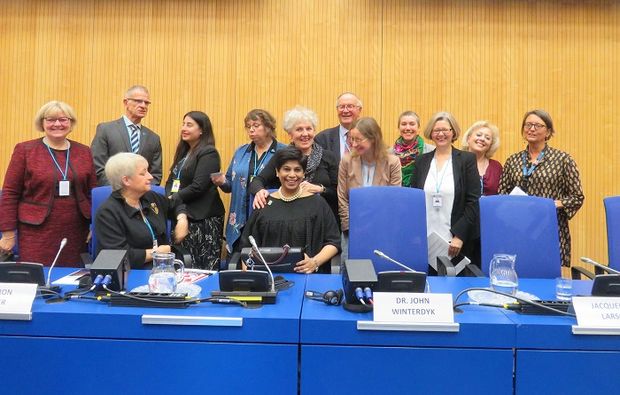How can slavery and human trafficking be prevented? JKU expert Dr. Karin Bruckmüller was recently in Vienna to provide answers to these questions and more.

A number of experts recently addressed the United Nations assembly in Vienna, holding presentations on this very controversial subject. Dr. Karin Bruckmüller (Department of Criminal Law and Medical Law, JKU) was among the experts that addressed the UN assembly.
Dr. Bruckmüller summarized, "In times when there is a high influx of refugees, we must pay greater attention to differentiate between identifying victims of human trafficking and smuggled refugees. This is the only way to maintain support measures designed to protect victims’ rights. We have to pay special attention to the victims of human trafficking who - because they often enter a country illegally or the exploitive situation must make them simultaneously an offender - must be treated in compliance with international law as a victim and therefore they should not be criminally punished."
Human trafficking and slavery is re-emerging in Europe, especially as a result of the influx of refugees. Prevention strategies were discussed at the panel for “Contemporary Enslavement and Trafficking of Women and Girls” (ACUNS) as part of the UNODC Conference of the Parties to the United Nations Convention against Transnational Organized Crime, opens an external URL in a new window. State representatives from around the world learned about Dr. Karin Bruckmüller’s findings. The legal expert at the JKU created and launched a project titled “Schutz für Menschenhandelsopfer in der sog. Flüchtlingskrise” supported by funds provided by the Fritz Thyssen Foundation.








